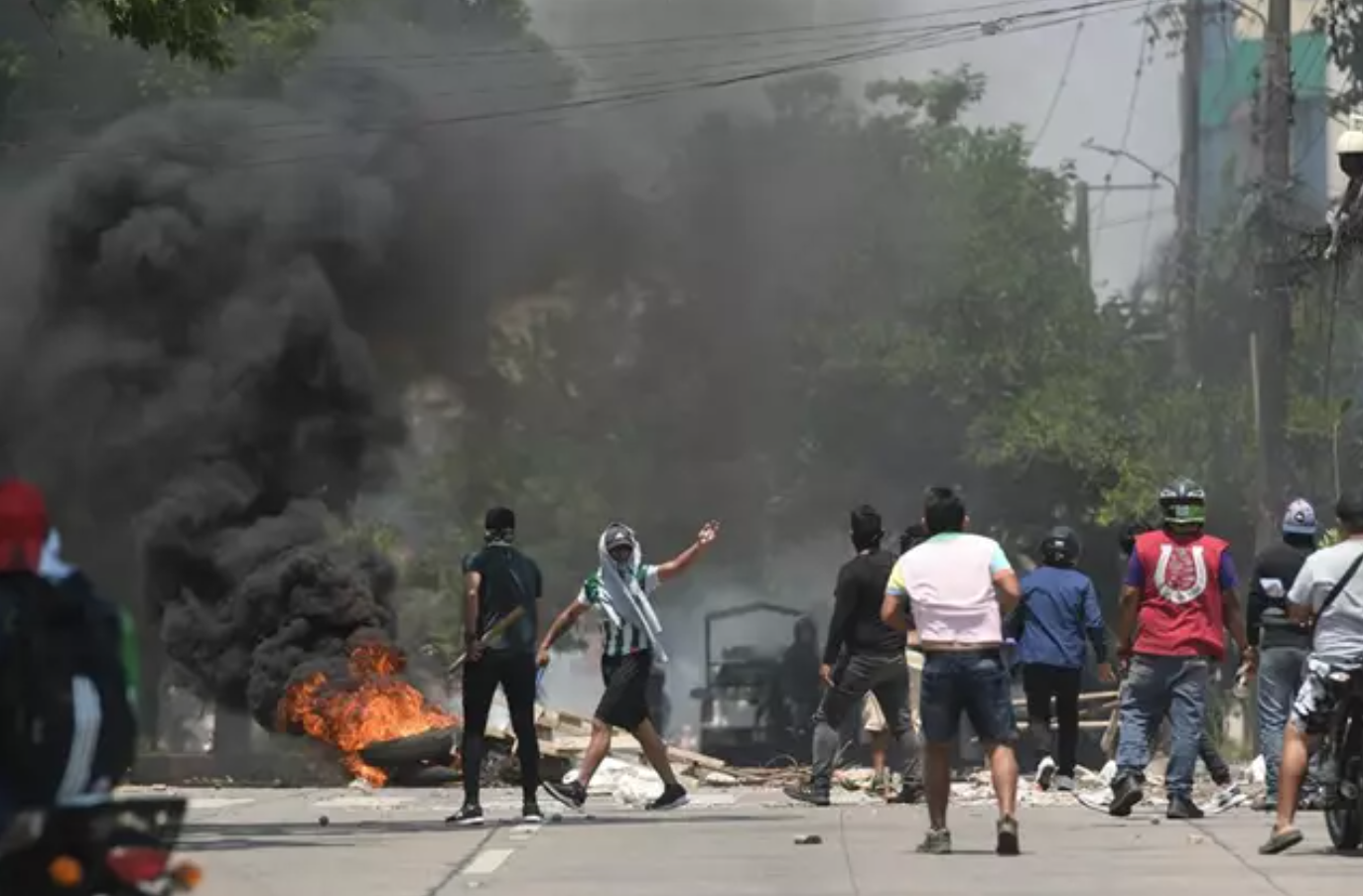Based on the false thesis of a coup d’état (political crisis of 2019), former president Jeanine Áñez was arrested and imprisoned in March 2021. Almost two years later, and based on the same thesis, Luis Fernando Camacho, governor of the autonomous department with the greatest economic power in Bolivia, has been arrested (state kidnapping) and sentenced to four months of detention. He is accused of terrorism.
This act, committed by police agents on December 28, has revealed the dictatorial drift of Luis Arce’s government and provoked a citizen reaction in Santa Cruz by blocking streets, setting fire to public institutions (Public Prosecutor’s Office, police command and judicial power, national taxes, among others) and the house of a state minister and confrontations with the police.
How can we understand the dictatorial drift of the Bolivian president that has become evident through the arrest of an autonomous governor, elected by the citizens’ vote?
The detention of the Santa Cruz governor is understood as a fact indicative of the dictatorial drift of the Bolivian government since his political rights have been suppressed, not only restricted. In other words, from the apex of the pyramid, the central power has decided on the political freedom of an autonomous governor, but without intermediation or institutional counterweights to limit or restrict the abuses of the State’s monopoly of violence.
In order to understand this event of the significant impact that reflects the institutional weakness of democracy in Bolivia, it is pertinent to recognize four factors that shape it: legal, political-partisan, polarization, and citizen self-organization.
According to legal experts, five illegalities were committed during the detention of Luis Fernando Camacho. Kidnapping: his right to defense and to be previously notified was violated; excessive violence was used, and he did not have a formal accusation, besides the fact that it is in the middle of the judicial vacation; there was no criminal offense since the alleged crime of terrorism is vague and ambiguous; he was transferred to La Paz when he resides in Santa Cruz; and there was forced disappearance since his rights to physical freedom, personal integrity, psychological-moral integrity and the right to health were violated.
The internal struggle within the MAS between the radical wing of Evo Morales and the renovating wing of Luis Arce has deepened to the point of bringing to light allegations of corruption and drug trafficking in the administration of both leaders of the party that has been in power since 2006. However, the false idea of a coup d’état in 2019 is commonplace in both wings and leaderships. Therefore, Camacho’s arrest can be translated into a political trophy for the president that symbolizes, within the framework of his fallacious thesis, the fall of the “right-wing oligarch coup-maker” and, therefore, a breath of fresh air with the masses.
From an affective perspective, polarization is a process of permanent conflict between us versus them. That is, a scenario in which the ruling elites decide on confrontation and leave aside cooperation, question the legitimacy of certain public institutions, and cause conflicts among citizens through issues that divide and mobilize, because, strategically, fragmentation is more favorable than consensus. Based on this conceptual framework, it is clear that the state kidnapping of the governor of Santa Cruz encourages polarization since it benefits the MAS as a governing party which, by the way, is suffering the constant evolution of an internal division.
The permanent conflict of “us” versus “them”, encouraged by the ruling elite, has been a favorable circumstance for the self-organization of Santa Cruz citizens and their political protest against the abuses of the state’s central power. Between October 22 and November 25, 2022, there was a strike of public and private activities with blockades of streets and highways in the department to demand the rescheduling of the population and housing census before 2025 (the year of the general elections), which achieved its goal.
With the arrest and preventive detention of Camacho, the Arce government has touched a vein with strong ideological and identity sensitivity because he has not respected the investiture of a political representative who won the elections with more than 50% of the votes and embodies cultural values of the region. In other words, from La Paz, he has ideologically strengthened the historical border between Santa Cruz and the central state.
In conclusion, based on the false idea of the coup d’état, which in reality was a political crisis, due to the resignation and flight of Evo Morales after having committed electoral fraud, the democratic institutions are more weakened than ever by the political behavior of the current national government. The dictatorial drift of Luis Arce, manifested in the state kidnapping of Luis Fernando Camacho (autonomous governor) and the theft of his political freedom, is a bad political signal for the hope of democratic coexistence and respect for ideological differences in Bolivia. This is a dark signal that Latin America must take seriously to put limits to it.
*Translated from Spanish by Janaína Ruviaro da Silva











